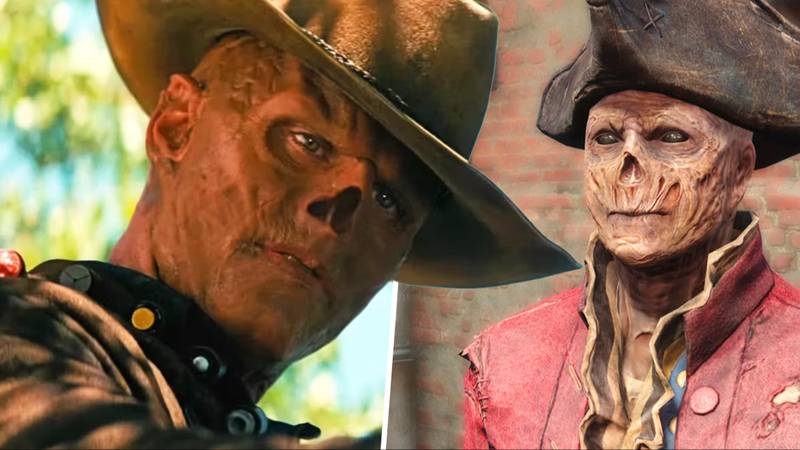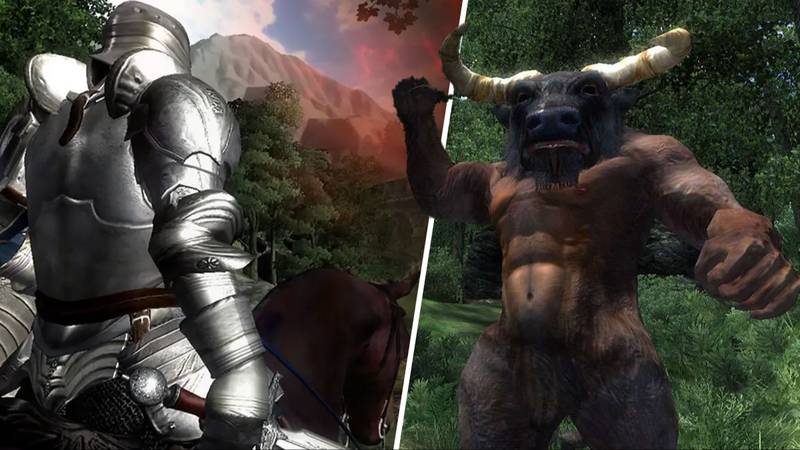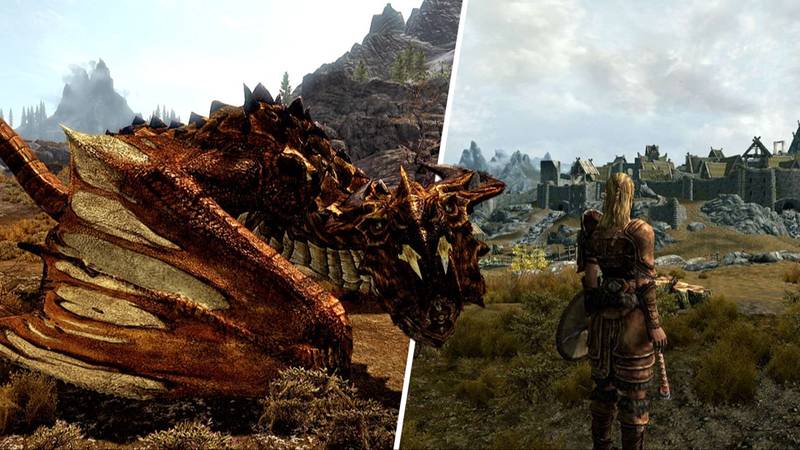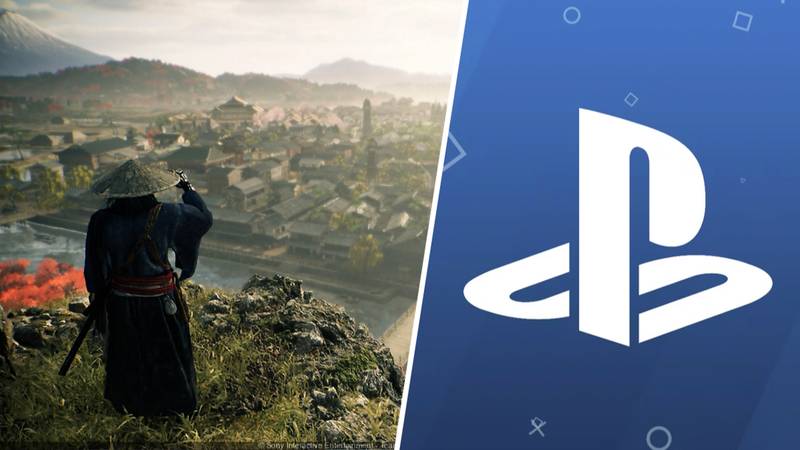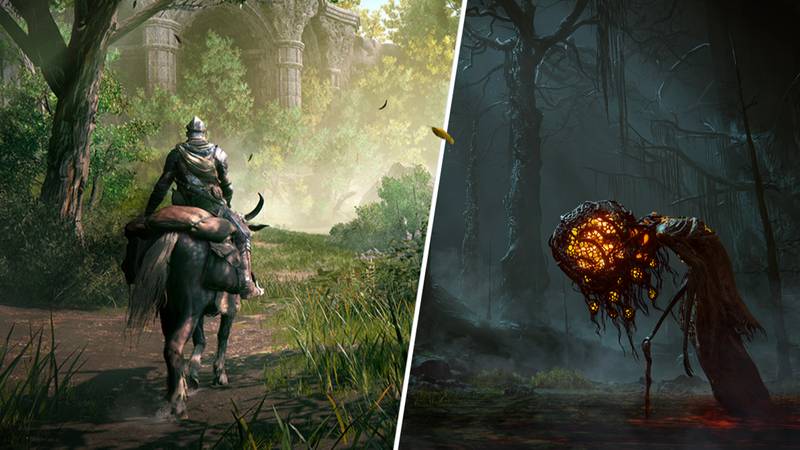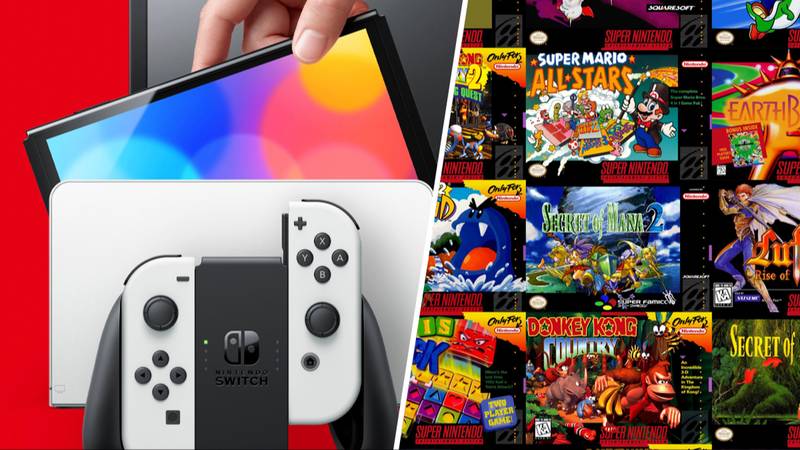‘Chicory’ Interview: Inside 2021’s Most Underrated GOTY
Published
| Last updated
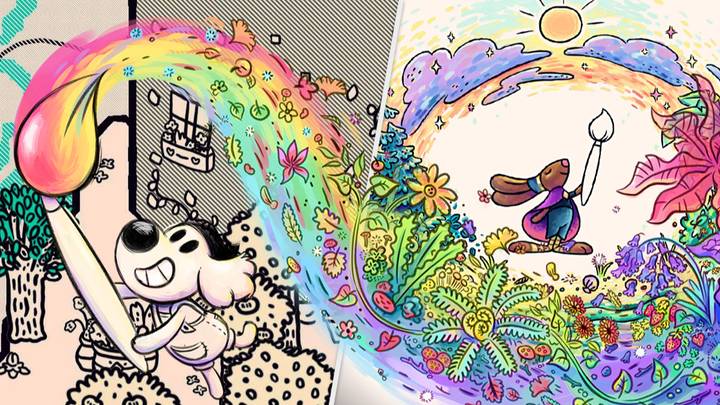
Featured Image Credit: Finji
In a year where fan-favourite franchises have returned and a generation of consoles are pushing video game graphics to unbelievable new heights, a small indie adventure about a dog with a magic paintbrush and anxiety managed to secure a spot as one of 2021’s best releases.
I spoke to Chicory’s creator and director Greg Lobanov about the challenges and complexities involved in creating a deeply personal - not to mention immensely ambitious - piece of work. One that, frankly, deserves every last scrap of critical adoration that’s been heaped upon it. If you’ve yet to play Chicory, consider this my attempt to win you over to one of the year’s most moving experiences.
Loading…
“My last game, Wandersong, had pretty solid reviews,” Lobanov tells me over Zoom. “But not quite as good as this. A lot of what I did coming into Chicory was basically looking at what the reaction was to Wandersong and looking at what people didn't like about it. Thinking about how I could improve on what came before.”
Lobanov explains he was pretty much expecting Chicory to get better reviews than Wandersong, simply because that had been his intention from the start. But while the buckets of praise and high Metacritic scores are obviously music to his ears, it’s the personal connections people made with Chicory that the developer really cares about.
“Making something that's good is different than making something that people really connect with, and that means something to people.” he says. “I think that’s measured differently. Chicory obviously has a lot of personal aspects for me, but I just thought it was so specific. I didn't think that anyone else would really connect with it. So that's been a huge surprise.”
On the face of it, Chicory is the kind of game that could slot into a presentation on wholesome indie games. You take control of a funny little dog who’s given a magic paintbrush and told to go out into a top-down Zelda-esque world to solve puzzles, meet NPCs, and paint every house, field, tree, and lake however you like. It’s thoroughly adorable, but there’s a genuine darkness bubbling under the surface that will occasionally break through - typically in the form of boss battles.

These deeply intense encounters are the only time Chicory will ask the player to engage in combat. They’re also where the game’s central themes of dealing with mental health issues like anxiety, self-loathing, and impostor syndrome will literally manifest as monsters for us to fight.
“That was probably the one aspect of the entire game’s design process that had the most friction to it”, Lobanov admits. “When you think about the game as a whole, those boss action sequences stick out like a sore thumb, they really don't belong there. But I really felt like the game needed something like that. The heart of the whole story is this conflict about the highs and lows of making art, and like the challenges that come with that. And I really wanted to express that. It just felt like the boss battles were the only way to really get some of that stuff across. Those intense, high emotion sequences.”
He adds: “I really was happy with how they came out because of the context of everything else. It’s such a peaceful game, and these encounters stand out so much. So I feel like we actually had a pretty good impact from those, where if we had just made an action game, you wouldn't have thought about it as much.”
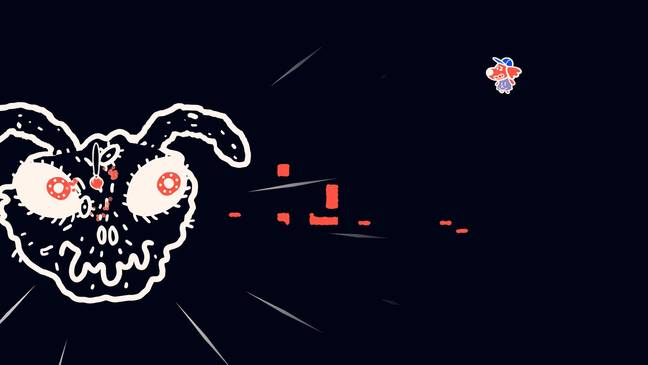
Chicory certainly isn’t afraid to go to some dark places, which isn’t an easy thing to do in a game that both looks adorable and is often light-hearted and properly funny. I ask Lobanov if there was ever a fear of going too far - either in terms of making light of some of the game’s darker themes and undercutting the message, or in simply going too bleak and putting people off.
“Too heavy was definitely a problem,” he laughs. “We had to step back a couple times, and really think about what would be the reasonable thing to do. So the versions of this game that didn't make it out were the ones that I think were actually a little bit darker. A bit rougher.”
One of those earlier versions of the game saw a much more unlikable mentor figure in the titular character of Chicory. In the game as we know it, Chicory is a reluctant teacher struggling with her own demons while forming a tentative relationship with the player. We’re not meant to like her all the time - but Lobanov tells me it was tricky to find the balance between sympathetic and downright awful.
“It’s really important that she gives you such a bad impression early on, so trying to speak honestly to her rough edges as a character while also trying to give players some kind of a journey so that by the end of the game, they have somebody? That was a really tough balance to strike,” the developer explains.
“A lot of people were playing the game and meeting Chicory, and they were like; ‘I really don't like this person. I hope that she doesn't come back again.’ So that's where we had to really scale things back and rethink the relationship so that players could see that she's a cool person who's struggling with something, as opposed to ‘oh man… what a shithead.’”
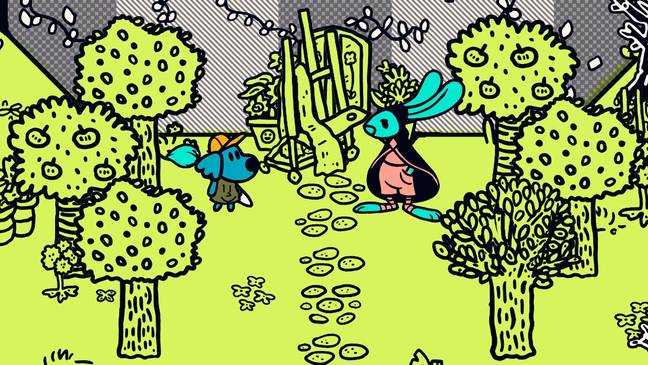
While most would agree that Chicory did, in the end, strike the right balance between light and dark, there are still plenty of genuinely intense and upsetting moments. The aforementioned boss battles being chief among them. Fortunately, the game has an impressive suite of accessibility options, including the choice to skip the bosses altogether… although this is something Lobanov was dead-against in the beginning.
“I was pretty stubborn about it,” the developer tells me, revealing that as soon as he told the rest of the team Chicory would have boss fights, they almost immediately suggested they be skippable. “I really felt like the player was going to be missing so much.”
Ultimately, Lobanov realised that a lot of players were coming to Chicory for a “certain kind of experience”. A more relaxed adventure that the punishing bullet hell-style boss battles didn’t quite fit in with. After seeing how the bosses would make some players actively want to stop playing, he decided implementing a skip was the right thing to do.
“I was pleasantly surprised,” he says. “Even if you skipped the boss fights, you really don't miss any of the story at all. I don't feel like anyone who just skips them is actually missing any of the plot. Especially because the really cathartic, important emotional things that happen from them are usually the fallout afterward, or the build up to them, right? You can skip the intense gameplay bit and still see how the characters are reeling from that experience and how they're growing from that. So I'm very happy now, in retrospect, and mad at myself for being so stubborn about it.”
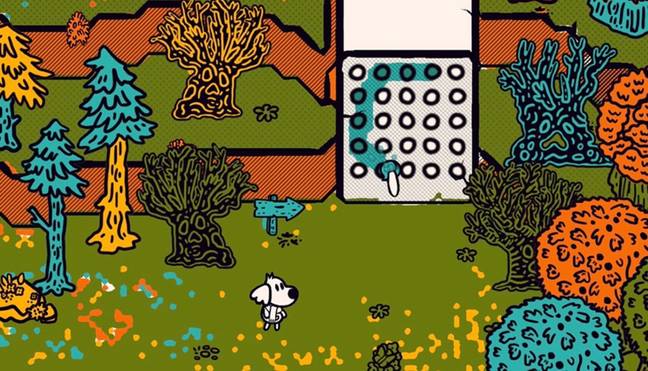
Ironically, that same stubbornness - that unwillingness to let go of an idea - proved pretty vital in the earliest days of Chicory’s life. Lobanov decided pretty early on that the game would be a top-down adventure set in an open world. The only issue was that he’d never had never made anything remotely like that before. He simply kept practicing until he got it right. It took a while.
“There were definitely challenging moments early on, because I was so used to working on Wandersong,” he says with a slight sigh. “Basically what I did was make the first chapter of Chicory, up until you get to that first boss. And then I just did passes on that chapter until I felt like it was solid. And the very first pass, I'll say, was just horrible.
“It’s funny, if you looked at them side by side, you might not even say they’re that different. But it was really a case of figuring out just how many rooms to make available, how many exits a person can see at a time, stuff like that. I think I had to build intuition for it. So I practiced till I got it right. And once that was figured out, building out the rest of the game was actually a lot simpler.”
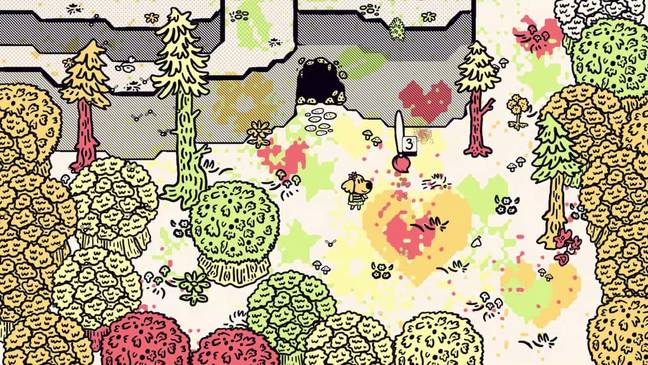
Another simple step in Chicory’s development process was enlisting composer Lena Raine, whose work you might be familiar with from the excellent Celeste. Lobanov explains Raine is actually an old friend, and that he suggested her for Celeste all those years ago. Working with her for Chicory was a no-brainer then… but their collaboration ended up taking Lobanov slightly by surprise.
“I have to say that I did not expect her to go as hard as she did on the Chicory soundtrack,” Lobanov chuckles.
If you’ve listened to the game’s excellent music then you’ll know that Raine absolutely did not come to f*ck about. It’s an incredible selection of pieces that range from rousing calls to adventure and relaxed acoustic guitars, all the way through to heart-racing chiptune beats that bring out an extra layer of intensity and emotion in the boss fights. Raine’s score is a huge part of the game, and Lobanov wouldn’t have it any other way.
“She really resonated with a lot of the themes of the game,” he explains. “Especially in terms of history and honouring the tradition of art, and stuff like that. I think that really inspired her work in this more grand-feeling scope - a soundtrack that has this sense of history and epic adventure, kind of like a JRPG. I love what she did. couldn't believe that it was so different from what she was already successful at. And still, like, so good.”
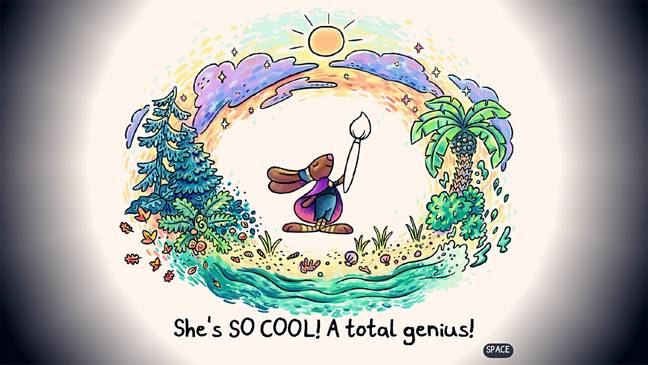
Chicory is a truly special game. It’s the perfect example of what a team of talented, passionate individuals can create when they’re all committed to telling a meaningful story with love and care. It is, by any definition, a work of art, and it’s thoroughly heartening to see such a release garner so much adoration. But I wonder: how does Lobanov want Chicory to be remembered ten years from now?
The developer takes a long pause before replying. “I guess the people that I was most excited about making this game for are people who are into games, but don't see themselves as artists. Or who aren't in touch with being creative.”
“I would love for Chicory to be the game that got people back in touch with their creativity. That would be really exciting. That’s something I hope people would get from it. I think that message, that anyone can be an artist, is something that was really important to everyone on the team. I think it’d be really cool for people to kind of get that if they got that from the game.”
Topics: Indie Games






